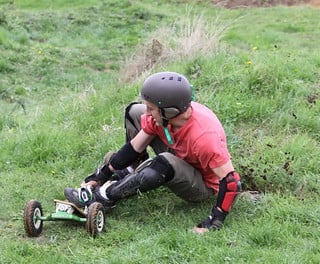Winter camping is an exhilarating experience, offering serene landscapes and a unique challenge for adventure seekers. A crucial part of this experience is the winter camping tent. In this comprehensive guide, we’ll explore the ins and outs of winter camping tents, helping you make an informed decision for your next winter adventure.

Understanding Winter Camping Tents
When it comes to braving the cold and harsh conditions of winter camping, not all tents are created equal. A winter camping tent, often referred to as a 4-season tent, is specifically designed to withstand the severe weather conditions that winter can throw at you.
What Makes a Tent ‘Winter-Ready’?
A winter-ready tent is defined by several key features. First and foremost, it is designed to withstand heavy snowfall. This is achieved through a robust frame, usually made of high-strength aluminum, that can support the weight of snow without collapsing.
Secondly, winter tents are made with thicker materials to provide better insulation and keep the cold air out. They also feature a low, aerodynamic shape to withstand strong winds.
Lastly, a winter-ready tent has fewer mesh panels and a rainfly that extends close to the ground, reducing airflow and helping to retain heat.

Key Features of Winter Camping Tents
When shopping for a winter camping tent, there are several features to look out for:
- Robust Frame: The frame should be sturdy enough to withstand heavy snowfall and strong winds. Aluminum is a popular choice due to its strength and light weight.
- Insulation: Look for a tent with thick walls and minimal mesh panels to keep the cold air out and the warm air in.
- Vestibule: A vestibule provides extra space to store gear and can also act as a windbreak.
- Ventilation: While you want to keep the cold air out, ventilation is important to prevent condensation inside the tent.
- Ease of Setup: Winter conditions can make setting up a tent challenging. Look for a tent that is easy to set up, even with gloves on
Choosing the Right Winter Camping Tent
Selecting the right winter camping tent can be the difference between a memorable winter adventure and a frosty disaster. Here are some factors to consider when making your choice.
Size and Capacity: How Big Should Your Tent Be?
The size of your tent will largely depend on the number of people that will be using it. As a rule of thumb, it’s always better to opt for a slightly larger size than you think you’ll need. This is because you’ll likely be spending more time inside the tent during winter camping trips due to the cold weather, and you’ll also need extra space to store your winter gear.
However, keep in mind that a larger tent can also be harder to heat. A good balance is key.
Material and Durability: What Your Tent Should Be Made Of
Winter camping tents are typically made from nylon or polyester, both of which are durable and water-resistant. Look for a tent with a high denier rating, as this indicates a thicker, more durable fabric.
The poles of the tent are equally important. Aluminium poles are a popular choice due to their strength and lightweight nature.

Ease of Setup: Ensuring a Hassle-Free Camping Experience
Setting up a tent in cold, snowy conditions can be challenging. Look for a tent that is easy to set up, even with gloves on. Freestanding tents can be particularly useful in winter conditions as they don’t require stakes to stand up, which can be difficult to secure in frozen ground.
Price: Getting the Best Value for Your Money
Winter camping tents can range significantly in price, from budget options to high-end models. While it can be tempting to go for the cheapest option, remember that a good quality tent is an investment. It’s worth spending a bit more for a tent that will keep you warm and dry, and last for many camping trips to come.
Top Winter Camping Tents in the Market
With so many options available, finding the right winter camping tent can be overwhelming. To help you out, we’ve rounded up some of the best winter camping tents currently available in the market.
Our Top Picks for Winter Camping Tents
- The North Face Wawona 4P: This 4-person tent is a favorite among winter campers. With a robust geodesic design, it’s built to withstand harsh winter conditions. The dual doors and vestibules offer easy access and ample storage space.
- Naturehike Opalus Backpacking Tent 2-4: Known for its exceptional strength-to-weight ratio, the Opalus is a lightweight yet sturdy option. It’s a 3-person tent with a single entrance and vestibule, making it a compact choice for winter camping.
- MSR Access 3: This 3-person, 4-season tent is designed for backcountry skiers and splitboarders. It’s lighter than many winter tents, making it a great choice for those who need to carry their gear over long distances.
Budget-Friendly Options for Winter Camping Tents
- REI Co-op Arete ASL 2 Tent: This 2-person tent offers a great balance of price and performance. It’s a solid choice for those new to winter camping.
- ALPS Mountaineering Tasmanian 2: This tent offers plenty of room and robust construction at a budget-friendly price. It’s a great option for those who don’t mind a bit of extra weight.
Luxury Winter Camping Tents for the Ultimate Experience
- Hilleberg Tarra: This 2-person tent is known for its exceptional durability and comfort. It’s a top choice for those who want the best of the best for their winter camping adventures.
- The North Face 2-Meter Dome: This 8-person tent is the epitome of luxury in winter camping. With ample space and robust construction, it’s perfect for base camps and extended stays.
Caring for Your Winter Camping Tent
Investing in a winter camping tent is just the first step. Proper care and maintenance can significantly extend the lifespan of your tent and ensure it continues to provide reliable shelter in harsh winter conditions.
Proper Storage for Your Winter Camping Tent
Storing your tent properly when it’s not in use is crucial. Always ensure your tent is completely dry before packing it away to prevent mildew and fabric damage. It’s best to store it loosely in a breathable storage sack, rather than the compact carry bag it came in. Keep it in a cool, dry place out of direct sunlight.
Cleaning Your Winter Camping Tent: Do’s and Don’ts
After each camping trip, it’s a good idea to clean your tent. Use a mild, non-detergent soap, a sponge, and cold water. Never use a washing machine or dryer as they can damage the fabric and seams. Always air dry your tent completely before storing it.
Avoid cooking inside your tent as food smells can attract wildlife. It’s also a good idea to remove your boots before entering to keep the interior clean.
Repairing Your Winter Camping Tent: A Handy Guide
Despite your best efforts, your tent may get damaged. Most tents come with a repair kit, so familiarize yourself with how to use it. Small tears can be patched up, while broken poles can often be splinted until you can replace them.
Remember, regular inspections can help you spot and fix minor issues before they become major problems.

Preparing for Your Winter Camping Adventure
Winter camping is a unique and rewarding experience, but it also presents its own set of challenges. One of the most crucial aspects of your preparation is choosing the right winter camping tent. From understanding what makes a tent winter-ready to knowing how to care for your tent, we’ve covered a lot of ground in this guide.
Remember, the right tent for you depends on your specific needs and circumstances. Consider factors like size, material, ease of setup, and price. Explore the different options available in the market, from budget-friendly choices to luxury models. And once you’ve made your investment, ensure you care for your tent properly to extend its lifespan.
Winter camping can be a test of your resilience and adaptability, but with the right gear, it can also be an unforgettable adventure. So pack your winter camping tent and embrace the beauty of the great outdoors in winter. Happy camping!
Frequently Asked Questions About Winter Camping Tents
In this section, we’ll address some of the most common questions that campers have about winter camping tents.
- Can I use a 3-season tent for winter camping?
While a 3-season tent can be used in mild winter conditions, they’re not designed to withstand heavy snowfall or high winds. For harsh winter conditions, a 4-season tent is recommended.
- How do I insulate my winter camping tent?
There are several ways to insulate your tent. Using a footprint or ground cloth can add an extra layer of insulation between your tent and the cold ground. Inside the tent, using a quality sleeping pad can provide significant insulation. You can also add a space blanket to reflect body heat back into the tent.
- How do I ventilate my tent in winter?
Most winter tents come with adjustable ventilation options. It’s important to use these to reduce condensation inside the tent. Cracking a door or window or using roof vents can help maintain airflow without letting too much heat escape.
- What should I look for in a winter camping tent?
Key features to look for include robust construction to withstand snow and wind, good insulation to keep the cold out, and ease of setup. You should also consider the size and weight of the tent, depending on your camping needs.











